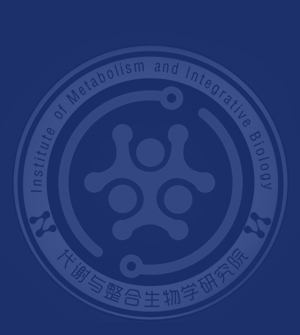

 Tel: 0086-21-31242918
Tel: 0086-21-31242918
Email: fuming_li@fudan.edu.cn
Office Address: Room C7021, Interdisciplinary Building No.2, Fudan University
Personal Profile
2021.7- Institute of Metabolism and Integrative Biology, Fudan University
2020.8-2021.6 Research Associate, Perelman School of Medicine, University of Pennsylvania
2015.8-2020.7 Postdoc, Perelman School of Medicine, University of Pennsylvania
2011.1-2020.7 Postdoc, Institute of Biochemestry and Cell Biology, CAS
Research Interests
Li's lab studies metabolic control of liver and lung tumorigenesis . We use multiple animal and cell line models together with clinical samples, and integrate metabolic approaches with CRISPR screen to explore the metabolic remodeling underlying tumor proreression and drug resistance. The long term goal is to provide new mechanistic insights for targeting precision cancer metabolism and personalized medicine. Current research projects include: (1) Identify metabolic vulurabilities in cancer; (2) Dissect metabolic plasticity in cancer; (3) Develop metabolism-focused cancer therapeutics.
Honors and Awards
2020 Holtzer Outstanding Postdoc Research Award, University of Pennsylvania, Perelman School of Medicine
2019 Travel Arward, NCI CCR Liver Cancer Program: Special Conference on Tumor Metabolism, invited speaker
Selected Publications
Mi W, You JW, Li LC, Zhu LZ, Xia XY, Yang L, Li F, Xu Y, Bi JF, Liu PY, Chen L, Li FM*. BET inhibition induces GDH1-dependent glutamine metabolic remodeling and vulnerability in liver cancer. Life Metabolism, 2024, loae016.
Liu PY, Ji HB, Li FM*. MRE11 lactylation: a linker between Warburg effect and DNA repair. Life Metabolism, 2024, 3 (3), loae013.
Li FM*#, Liu PY#, Mi W, Li LC, Anderson NM, Lesner NP, Burrows M, Plesset J, Majer A, Wang GL, Li JY, Zhu LZ, Keith B, Simon MC*. Blocking methionine catabolism induces senescence and confers vulnerability to GSK3 inhibition in liver cancer. Nat Cancer. 2024 Jan;5(1):131-146. (* co-corresponding).
Liu ZJ, You YY, Chen QY, Li GB, Pan WF, Yang Q, Dong JJ, Wu Y, Bei JX, Pan CY*, Li FM*, Li B*. Extracellular vesicle-mediated communication between hepatocytes and natural killer cells promotes hepatocellular tumorigenesis. Mol Ther. 2022 Feb 2;30(2):606-620
Li FM*, Simon MC*. Cancer cells don't live alone: metabolic communication within tumor microenvironments. Dev Cell, 2020, 20;54(2):183-195.
Li FM, Huangyang PW, Burrows M, Guo K, Riscal R, Godfrey J, Lee KE, Lin N, Lee P, Blair IA, Keith B, Li B*, Simon MC*. FBP1 loss disrupts liver metabolism and promotes tumorigenesis through a hepatic stellate cell senescence secretome. Nat Cell Biol. 2020, 22(6):728-739.
Li FM#, Han XK#, Li F#, Wang R, Wang H, Gao YJ, Wang XJ, Fang ZY, Zhang WJ, Yao S, Tong XY, Wang YT, Feng Y, Sun YH, Li Y, Wong KK, Zhai QW, Chen HQ*, Ji HB*. LKB1 inactivation elicits a redox imbalance to modulate non-small cell lung cancer plasticity and therapeutic response. Cancer Cell. 2015,11;27(5):698-711.
Han XK#, Li FM#, Fang ZY, Gao YJ, Li F, Fang R, Yao S, Sun YH, Li L, Zhang WJ, Ma HM, Xiao Q, Ge GX, Fang J, Wang HD, Zhang L, Wong KK, Chen HQ, Hou YY, Ji HB. Transdifferentiation of lung adenocarcinoma in mice with Lkb1 deficiency to squamous cell carcinoma. Nat Commun. 2014;5:3261-3274.
Li FM, Liu P, Liu C, Xiang D, Deng L, Li W, Wangensteen K, Song J, Ma Y, Hui L, Wei L, Li L, Ding X, Hu Y, He Z, Wang X. Hepatoblast-like progenitor cells derived from embryonic stem cells can repopulate livers of mice. Gastroenterology. 2010,139(6):2158-2169.



 Fudan Email
Fudan Email Fudan Ehall
Fudan Ehall